Boon Manakitivipart’s trip to Japan this past winter included a visit to Daiju-en – one of the more amazing pine gardens in Japan. The garden is managed, today, by Tohru Suzuki. Here are some of the stand-out trees.
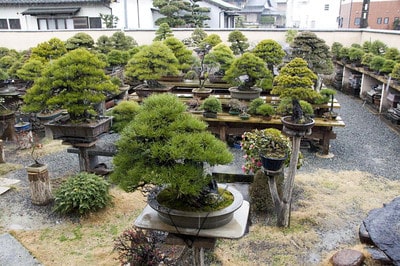
Daiju-en (Bob King photo)
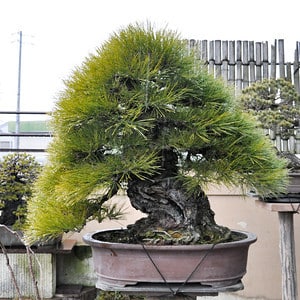
Kuromatsu
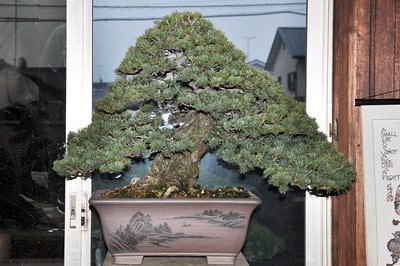
Goyomatsu
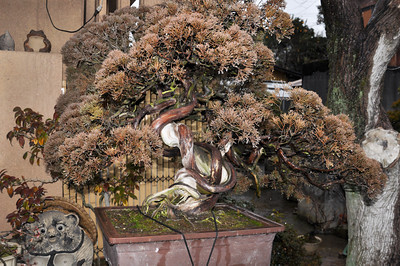
Shimpaku
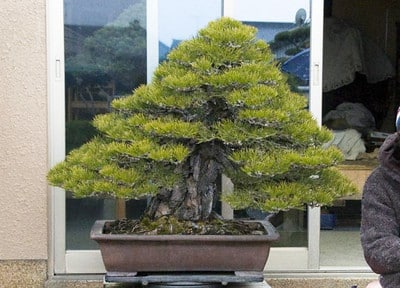
Kuromatsu – “Fudo” (Bob King photo)
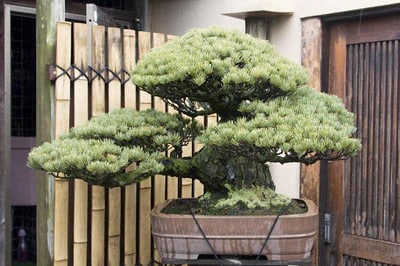
Goyomatsu (Bob King photo)
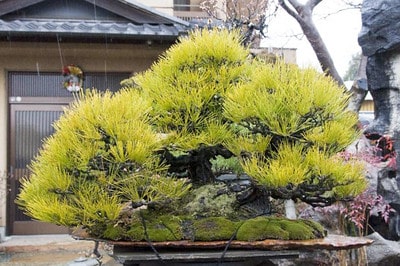
Kuromatsu (Bob King photo)
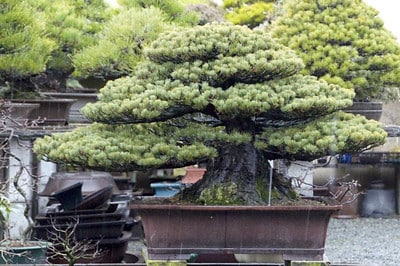
Goyomatsu (Bob King photo)
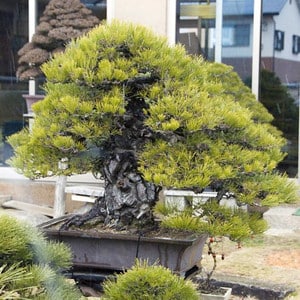
Kuromatsu (Bob King photo)
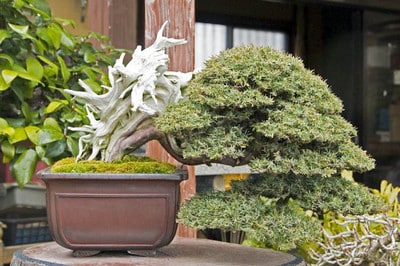
Tosho (Bob King photo)
Subscribe to Bonsai Tonight
New Posts Delivered Every Tuesday and Friday
Janet Roth says
Jonas, You’re one generation off. It’s managed Tohru, Toshinori’s son. (Toshinori passed away a few years ago.) Gotta watch out for that early-morning blogging!
xwires says
Ha – thanks Janet!
LeeBee says
What treatment makes the shimpaku look “mostly dead”?
xwires says
Hi LeeBee – shimpaku take on a brown cast when it gets really cold. The tree will green up again when it warms up in spring.
LeeBee says
Thank you. We don’t get that in Alabama
mc says
very nice collection, thanks for sharing the photos. 🙂
Owen Wightman says
I think the Shimpaku’s dead too. I bury some of mine here in Northern NJ for the winter and they never turn that brown – even when its zero degrees F outside. I think someone’s live vein is no longer live. It can happen to anyone (even the best of artists).
xwires says
I’ll have to have someone check up on this juniper next time they visit Daiju-en.
When I visited Japan, I saw many, junipers that were quite brown. Needle junipers often discolor the same way in winter. In the second to last photo, you can see a famous needle juniper behind the black pine that turns brown every winter (see a better photo here: http://bonsaitonight.files.wordpress.com/2009/03/daiju_en-3-of-8.jpg). Several of the trees in Shinji Suzuki’s garden looked the same: http://bonsaitonight.com/2011/09/09/shinji-suzukis-bonsai-garden/. Dead foliage is often a brighter, more golden brown – a color I’ve seen on many broken branches and a number of unfortunate trees.
xwires says
Update: the brown shimpaku is alive and well at Daiju-en. I didn’t realize how big the tree is – almost 3′ tall! I’ll try to get a photo in the next few weeks.